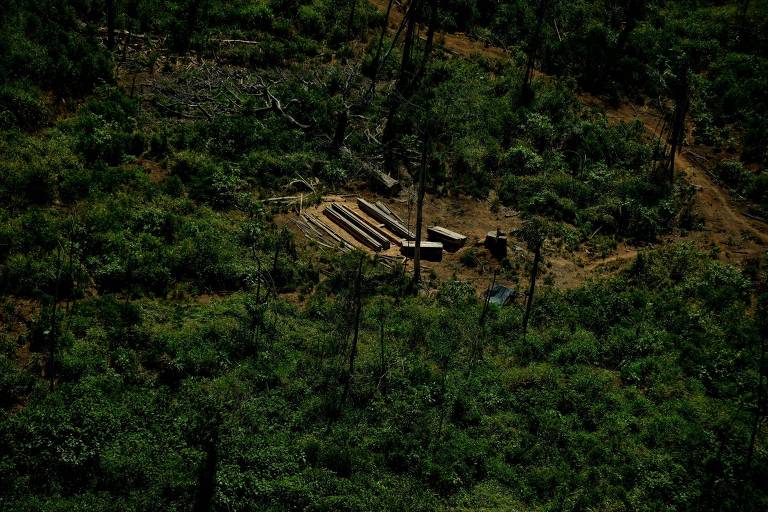The Jair Bolsonaro government wants to renew a multilateral organization that brings together countries that have territory in the Amazon region in an attempt to recover the international role that Brazil abandoned at the beginning of the current administration.
Interlocutors told Folha that, over the past year, Brazil has lost relevance in the international debate on the Amazon. Colombia's President Iván Duque quickly occupied that space.
In the wake of the burning crisis in August 2019, Duque convened in the following month, a meeting of leaders of countries that have Amazon territory and organized a summit in the city of Leticia (border with Brazil).
The Colombian politically capitalized on the meeting, which was broadcast live and held in an indigenous hut where the leaders received typical ornaments and sat on stools on the floor.
Bolsonaro participated by videoconference and sent Chancellor Ernesto Araújo as his representative.
Diplomats and international government advisers saw Duque's gesture as an attempt by the Colombian to occupy a vacuum left behind by Brazil. Over the past year, they argued that there is no reason why the country with the largest Amazon territory should stop being the leading player in any multilateral action related to the forest.
Brazil's lack of interest was considered even more problematic because Brasilia hosts the Organization of the Amazon Cooperation Treaty, which in recent years, has been downplayed. The government has even accumulated a 1 million debt.
Created from an international agreement signed in 1978, the entity brings together Brazil, Bolivia, Colombia, Ecuador, Guyana, Peru, Suriname, and Venezuela. It aims to articulate joint activities of its members for economic development and preservation of the region's environment.
Translated by Kiratiana Freelon
